Humans
Sign up for our newsletter
We summarize the week's scientific breakthroughs every Thursday.
-
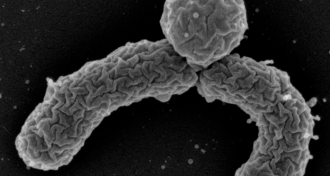 Health & Medicine
Health & MedicineNew antibiotic candidate shows promise
Tests in lab dishes and mice suggest an experimental compound called teixobactin can kill staph, TB microbes and other bacteria.
By Nathan Seppa -
 Health & Medicine
Health & MedicineWeight-loss surgery linked to better survival
Obese middle-aged and older people fare better if they have had bariatric surgery, a long-term study of veterans finds.
By Nathan Seppa -
 Health & Medicine
Health & MedicineHPV vaccination not linked to multiple sclerosis
Getting vaccinated against human papillomavirus, or HPV, is not associated with developing multiple sclerosis or similar diseases, a new study shows.
-
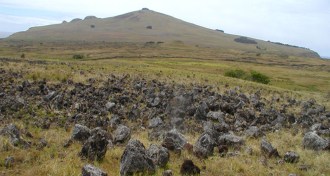 Archaeology
ArchaeologyStones challenge dating of Easter Island collapse
Despite losing ground in some areas, Polynesian farmers outlasted European contact.
By Bruce Bower -
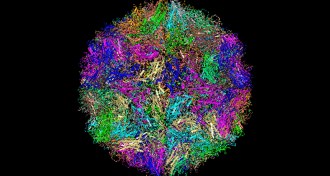 Life
LifeCold coddles colds
Antiviral responses aren’t as effective against common cold viruses in cooler temperatures.
-
 Health & Medicine
Health & Medicine‘AIDS’ gives inside view of science, politics of epidemic
In ‘AIDS Between Science and Politics,’ pioneering HIV expert Peter Piot discusses the factors and events that shaped the epidemic.
By Beth Mole -
 Psychology
Psychology‘Survival of the Nicest’ demonstrates altruism all around
Selfishness is not the rule in human society, new book argues.
By Nathan Seppa -

-
 Health & Medicine
Health & MedicineA bilingual brain is prepped for more than a second language
Bilingual and multilingual people make efficient decisions on word choices, neural exercise that may protect the aging brain.
-
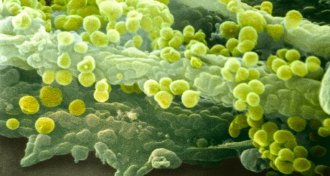 Health & Medicine
Health & MedicinePriming the elderly for flu shots
A drug that shuts down a potent signaling molecule in cells might boost protection elicited with flu vaccination, a study finds.
By Nathan Seppa -
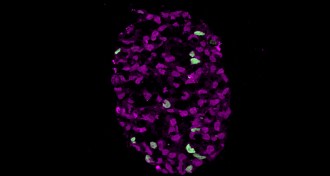 Humans
HumansPrecursors of human sperm and eggs made from stem cells
Reprogrammed adult human cells can produce germ cells, precursors of sperm and eggs.
-
 Health & Medicine
Health & MedicineOnline favorites of 2014
Science News' website traffic reveals the most-read news stories and blog posts of 2014.